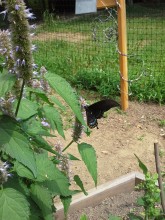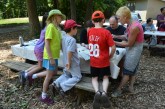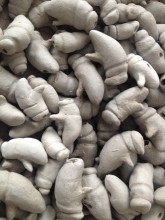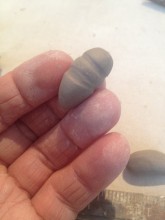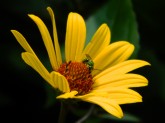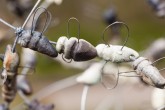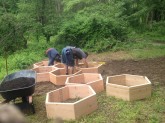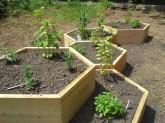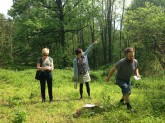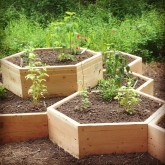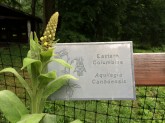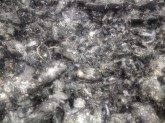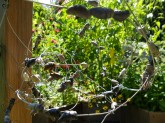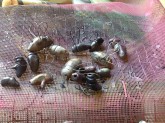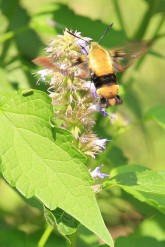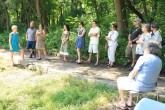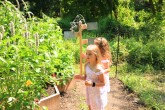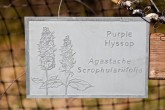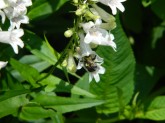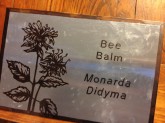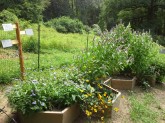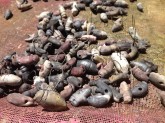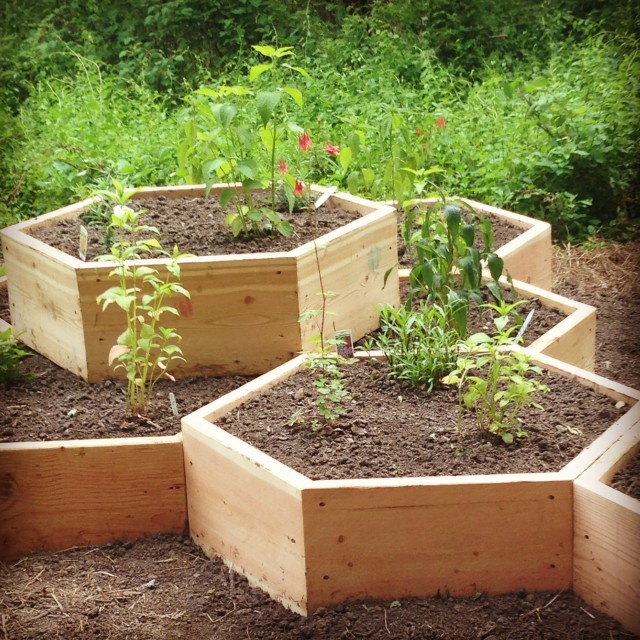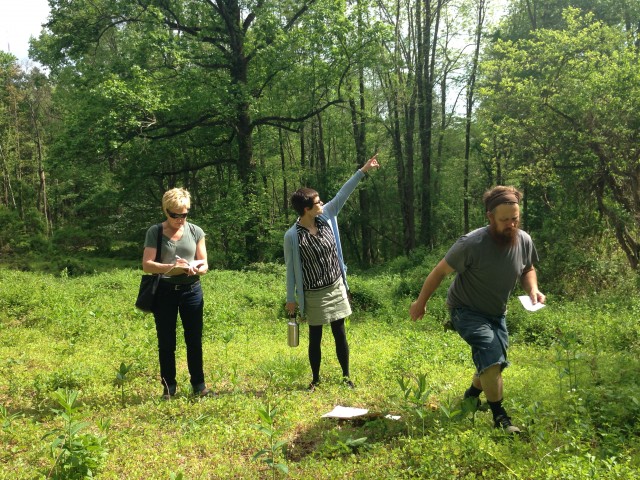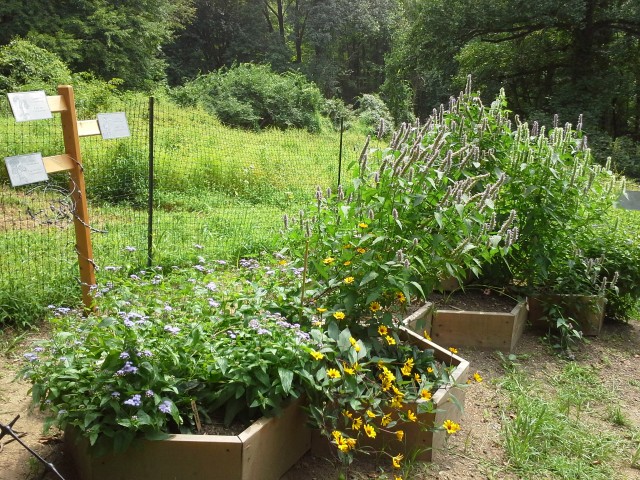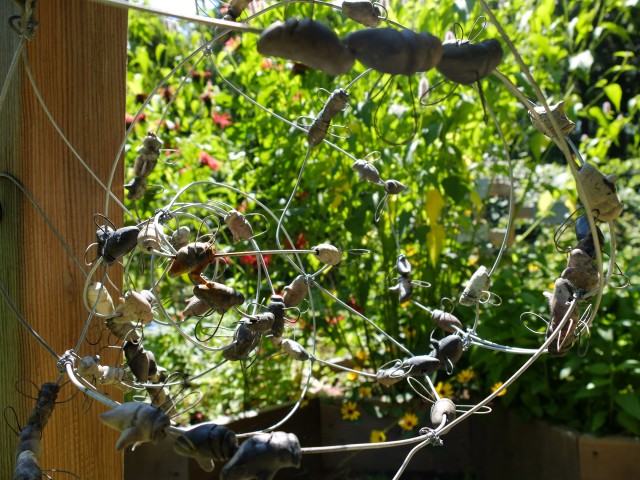Maggie Mills, B.H. Mills, & Marguerita Hagan
LandLab Project: Native Pollinator Garden
LandLab is an environmental art residency program that integrates art, ecological restoration, and public engagement, and is a joint project of the Schuylkill Center and the Center for Emerging Visual Artists (CFEVA). Support for LandLab is provided by the Knight Foundation, the National Endowment for the Arts, the Dolfinger-McMahon Foundation and the William Penn Foundation. This project was supported in part by the Pennsylvania Partners in the Arts program of the Pennsylvania Council on the Arts, a state agency funded by the Commonwealth of Pennsylvania and the National Endowment for the Arts, a federal agency. Support also provided by PECO. This program is administered regionally by the Greater Philadelphia Cultural Alliance.
Marguerita Hagan, B.H. Mills, and Maggie Mills built “Native Pollinator Garden,” a pollinator-focused series of raised beds accompanied by a sculptural installation to educate about native plants, chemical-free gardening, sustainable practices, and the relationship between humans and bees. Hundreds of people assisted with making over 1000 ceramic bees, while hand-painted zinc-etched botanical signs identify the seven plant species growing in the hexagonal planting beds.
Artist Statement
Colony Collapse Disorder (CCD) is devastating an essential component of our pollinator community: a community that makes most of the food we eat possible. The weakening of the foundation of our ecosystem poses a grave risk to our food supply. In addition, the fate of our honeybees serves as the “canary in the coal mine”, warning of the effects of our toxic agricultural processes on our own health. The disappearance of one third of our honeybee population has not been attributed to one single cause, but has been linked to monoculture, non-native parasites, GMO’s, and pesticides.
A singular focus on the European honeybee and Colony Collapse Disorder would undermine the essential role that the diversity of pollinators plays in laying the foundation for the entire food chain. The list of pollinators native to North America includes many species of bees, butterflies, moths, flies, beetles, birds, and bats. These native pollinators are fighting for survival in declining habitats and are vulnerable to the same perils that threaten the European honeybee.
Recommendations for the remediation of CCD and the declining habitats of our native pollinators include planting native and non-GMO plant species, eliminating pesticides, planting pollinator gardens in urban areas and along roadsides, and diversifying agricultural practices.
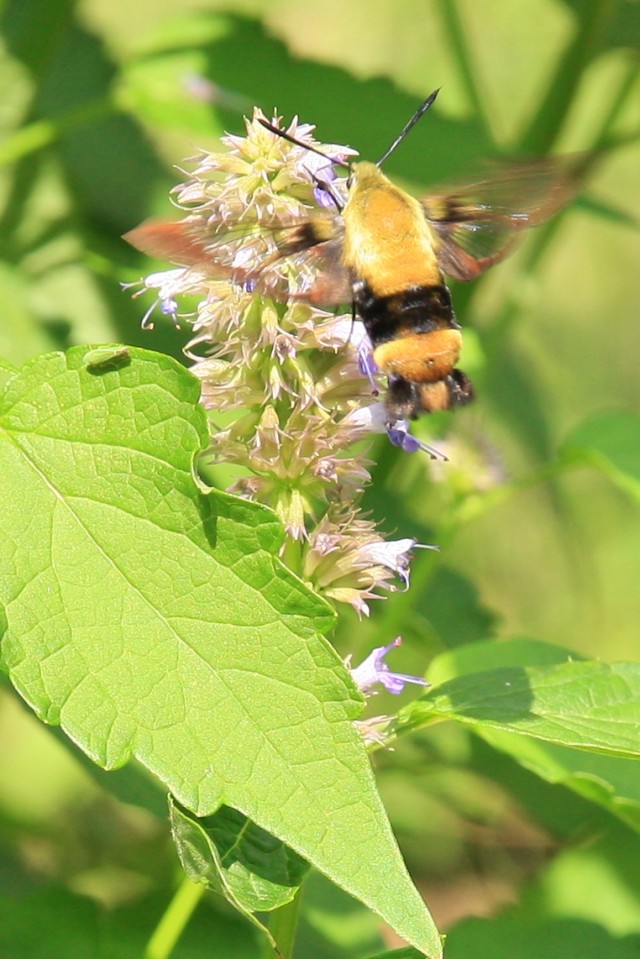 Native Pollinator Garden provides a variety of native blooms that follow three full seasons of succession. This provides forage for several generations of pollinators each year. The beds are constructed of chemical-free Douglas fir, are filled with a blend of organic, local soil and leaf compost, and are planted with native, organically grown plants from a local nursery. Native Pollinator Garden addresses the threats posed by monoculture, non-native species’ parasites and disease, GMO’s, and pesticides. It serves as an example of the importance of local action on an individual level.
Native Pollinator Garden provides a variety of native blooms that follow three full seasons of succession. This provides forage for several generations of pollinators each year. The beds are constructed of chemical-free Douglas fir, are filled with a blend of organic, local soil and leaf compost, and are planted with native, organically grown plants from a local nursery. Native Pollinator Garden addresses the threats posed by monoculture, non-native species’ parasites and disease, GMO’s, and pesticides. It serves as an example of the importance of local action on an individual level.
A swarm of pit-fired, ceramic bees surrounds Native Pollinator Garden. Members of the local community participated in both the making and firing of these bees on the grounds of the Schuylkill Center for Environmental Education. This process served as a way to engage with the public on the critical importance of the health and diversity of our pollinator community.
The plants in Native Pollinator Garden are labeled with relief-etched, zinc plates to assist the public with species identification. The number and variety of pollinators visiting Native Pollinator 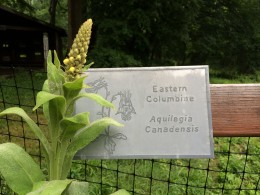 Garden was tracked by the Schuylkill Center for Environmental Education’s community throughout 2014. A data sheet was created so that visitors to the garden can participate in data collection over the long term.
Garden was tracked by the Schuylkill Center for Environmental Education’s community throughout 2014. A data sheet was created so that visitors to the garden can participate in data collection over the long term.
We are all connected.
Biographies
Maggie Mills was awarded a Career Development Fellowship at the Center for Emerging Visual Artists and is a 2014 Fleisher Wind Challenge Winner. Her work addresses the effects that environmental, social, and technology dynamics have on our spaces and the legacy that we leave to subsequent generations through these spaces.
B.H. Mills is a master carpenter, sculptor, and organic gardener. He has been working in wood, concrete and other reclaimed and sustainable materials for twenty years. He is currently installing a sculpture garden and sustainable organic gardening system on 1.5 acres of his home property.
When we pick out anything, we find it hitched to everything else in the universe- Marguerita Hagan shares John Muir’s vantage in process, sculpture, teaching and community arts collaborations. Cultivating potential and solutions with each creation, individual, and project she leads while serving diverse communities with years in clay and sustainable action.
Mills’ & Hagan’s Public Programs at The Schuylkill Center for Environmental Education included:
Clay bee making in artist’s studio and at SCEE; Pollinator Data collection with summer camp students; Clay bee pit-firing and pollinator discussion at the Great American Backyard Campout; Opening garden party; LandLab Kickoff Party; Concluding events in the Philadelphia Science Festival.
Hear Marguerita Hagan speak about their project at http://spts.us/schuylkill-center/-/pollinator-garden
For more information about the artists, visit their websites:
Margeurita Hagan B.H. Mills Maggie MIlls
To read more about Mills’ & Hagan’s project at the Schuylkill Center, check out these posts on the Schuylkill Center’s blog:
It’s not about the bees, it’s about the we. (August 11, 2015
What’s the bbuzzz? (June 6, 2014)
Meet the LandLab Resident Artists (April 21 2014)

